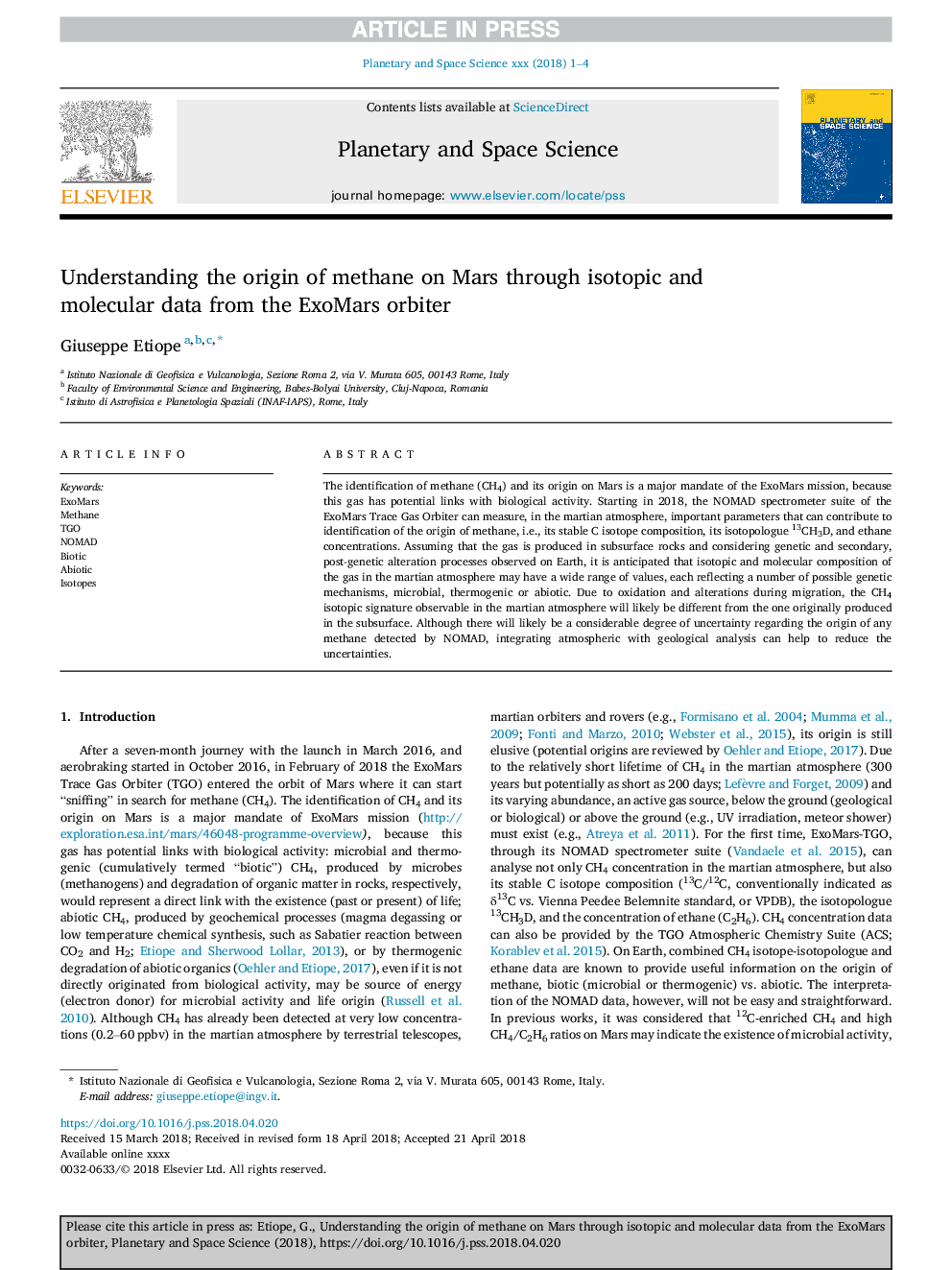| Article ID | Journal | Published Year | Pages | File Type |
|---|---|---|---|---|
| 8142056 | Planetary and Space Science | 2018 | 4 Pages |
Abstract
The identification of methane (CH4) and its origin on Mars is a major mandate of the ExoMars mission, because this gas has potential links with biological activity. Starting in 2018, the NOMAD spectrometer suite of the ExoMars Trace Gas Orbiter can measure, in the martian atmosphere, important parameters that can contribute to identification of the origin of methane, i.e., its stable C isotope composition, its isotopologue 13CH3D, and ethane concentrations. Assuming that the gas is produced in subsurface rocks and considering genetic and secondary, post-genetic alteration processes observed on Earth, it is anticipated that isotopic and molecular composition of the gas in the martian atmosphere may have a wide range of values, each reflecting a number of possible genetic mechanisms, microbial, thermogenic or abiotic. Due to oxidation and alterations during migration, the CH4 isotopic signature observable in the martian atmosphere will likely be different from the one originally produced in the subsurface. Although there will likely be a considerable degree of uncertainty regarding the origin of any methane detected by NOMAD, integrating atmospheric with geological analysis can help to reduce the uncertainties.
Related Topics
Physical Sciences and Engineering
Earth and Planetary Sciences
Geophysics
Authors
Giuseppe Etiope,
